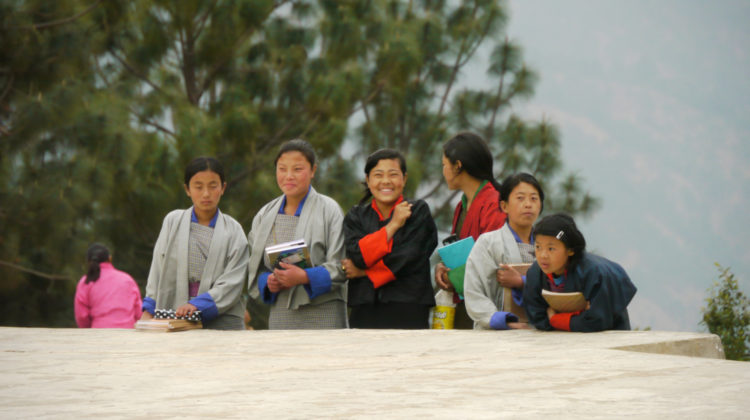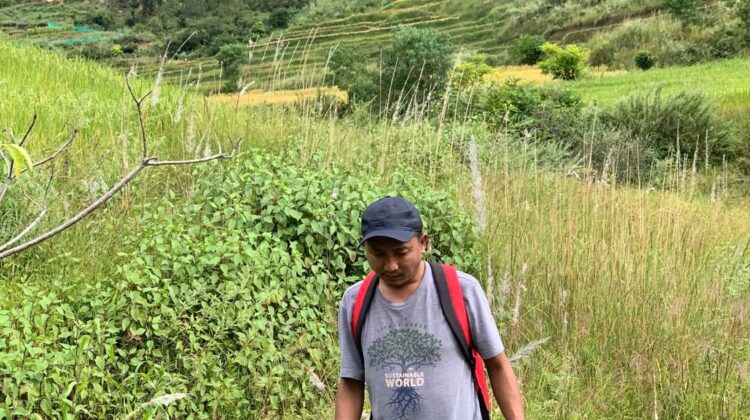Photo credit: Jeff Bellinger
March 8 marks International Women’s Day (IWD), a day to empower and celebrate the achievements made by women. It is also a day to advocate and take action to end gender equality. IWD 2021 falls on the one year mark of the global spread of COVID-19, which has or has threatened to unravel years of progress in education, hunger, and gender equality. Looking back on a year of upheaval that has disproportionately impacted women and girls, there is a dire need to intensify global efforts to advance gender equality.
The shadow pandemic
Since the beginning of international lockdowns, experts and advocacy groups raised concerns for the ‘shadow pandemic’ which points to the alarming surge of violence against women as a result of lockdown measures to contain the virus. Restrictions of movement have kept vulnerable women and girls isolated from support networks, all while increasing time spent with perpetrators in households facing heightened psychological and economic stress. Many social services have seen disruptions to vital protection services such as shelters and legal aid, further adding to the risk faced by women and girls.
At the end of 2020, Bhutan saw a 36% increase in gender based violence, a total of 700 cases as of November[1]. As seen in ‘Reflection: our journey to violence free Bhutan’ by RENEW (video below), women face lifelong challenges and stigmatization due to gender based violence and often suffer in silence. In addition to violence against women, the education of girls has also been compromised during COVID-19. School principals have shared an increase in girls dropping out of school due to early marriage or pregnancies. On the health front, there have been numerous reports of women seeking unsafe abortions which are only allowed in Bhutan when the women’s life is in danger or if the pregnancy was due to rape or incest.[2] With more time being spent at home, the burden of unpaid work becomes even more apparent as Bhutanese women reported over 2 hours more than men in unpaid work including housework and caregiving.[3] The shadow pandemic not only highlights the increase of gender based violence but also has furthered gender inequities that hinder opportunities for women and girls.
Video Playerhttps://web.archive.org/web/20211105094039/https://www.youtube.com/embed/3MtNeGQ3fB4?controls=0&rel=0&disablekb=1&showinfo=0&modestbranding=0&html5=1&iv_load_policy=3&autoplay=0&end=0&loop=0&playsinline=0&start=0&nocookie=false&enablejsapi=1&origin=https%3A%2F%2Fbhutancanada.org&widgetid=2
00:00
00:00
#FeministRecovery
With the global pandemic scaling back progress and achievements made in gender equality, there is a need to envision #FeministRecovery which ensures a gender responsive and inclusive recovery from COVID-19. A feminist approach to recovery can address the fundamental gaps in society that disproportionately impact marginalized communities. It can also remove systemic barriers to advance women and girls in decision-making roles, improve the economic security of women, and end gender based violence.
Bhutan has taken early steps to a gender responsive recovery. The Multi Sectoral Task Force – Community Based Support System (MSTF-CBSS), formed under the guidance of Her Majesty Gyalyum Sangay Choden Wangchuck, was mobilized in all 20 dzongkhags (districts) in order to protect those in greatest needs. With the aim of ‘reaching out together’ MSTF-CBSS has taken action to end gender based violence by sharing resources and capacity, developing joint sensitization and educational campaigns, and completing joint outreach initiatives.[4] Acknowledging the widespread experience of gender based violence, unconventional stakeholders have starting taking action during this pandemic. Thimphu City Bus Services trained 25 bus drivers and conductors on prevention of gender-based violence, sexual and reproductive health, and rights to education.[5] This initiative has expanded to train 47 taxi drivers to look for signs of abuse in passengers and will expand to more buses.
Gender equality advocates have been working holistically to remove systemic barriers faced by women and girls. Grassroots advocacy for safe abortions has grown, with support for civil society organizations to amplify the need for transformation as seen in Bhutan Media Foundations documentary on ‘Re-Thinking reproductive health of women in Bhutan’ (video below). There have also been calls to support women working in informal markets that have been dramatically impacted by COVID-19. A rapid socio-economic impact assessment completed by The National Statistics Bureau and UNDP Bhutan acknowledged more needs to be done to support unemployed women in traditional crafts or other informal jobs within the tourism sector.[6] Overall these examples highlight how an entire society of diverse stakeholder can come together to shape policies, opportunities, and attitudes that transform the work being done towards gender equality.
Video Playerhttps://web.archive.org/web/20211105094039/https://www.youtube.com/embed/Eg76FndGVYQ?controls=0&rel=0&disablekb=1&showinfo=0&modestbranding=0&html5=1&iv_load_policy=3&autoplay=0&end=0&loop=0&playsinline=0&start=0&nocookie=false&enablejsapi=1&origin=https%3A%2F%2Fbhutancanada.org&widgetid=1
00:00
00:00
Shift starts now
With so much turmoil during COVID-19 now is the time to bring a feminist lens to shift public policy, economics, and social wellbeing. The discussion and action taken by multiple stakeholders in Bhutan show a growing awareness of gender inequality and the work required by each individual, community, business, civil society organization, and government institution to dismantle the systemic barriers faced by women and girls. As communities rebuild from the pandemic, a feminist recovery can provide a lens to creating an equitable future for all.
References
[1] Lhaden, Yangyel. ‘Gender-based violence increases by 36.6 percent this year’. Kuensel. 26 Nov 2020. https://kuenselonline.com/gender-based-violence-increases-by-36-6-percent-this-year/
[2] “The Covid-19 pandemic unmasked the struggle that Bhutanese women face in seeking abortion”. Kuensel. 3 October 2020. https://kuenselonline.com/the-covid-19-pandemic-unmasked-the-struggle-that-bhutanese-women-face-in-seeking-abortion/
[3] Rinzin,Yangchen C. “Women spend more on all unpaid housework”. Kuensel. 21 December 2020. https://kuenselonline.com/women-spend-more-on-all-unpaid-housework/
[4] UNFPA. Taking Shelter: Communities tackle gender-based violence amid COVID-19 in Bhutan. Reliefweb. 27 January 2021. https://reliefweb.int/report/bhutan/taking-shelter-communities-tackle-gender-based-violence-amid-covid-19-bhutan
[5] UNFPA. Women supporting women: Female bus conductors drive out violence in Bhutan. 1 March 2021. https://www.unfpa.org/news/women-supporting-women-female-bus-conductors-drive-out-violence-bhutan
[6] National Statistics Bureau and United Nations Development Programme Bhutan. Rapid Socio-Economic Impact Assessment of COVID-19 on Bhutan’s Tourism Sector. May 2020. p 4-5. http://www.nsb.gov.bt/publication/files/pub1ip5024jn.pdf







